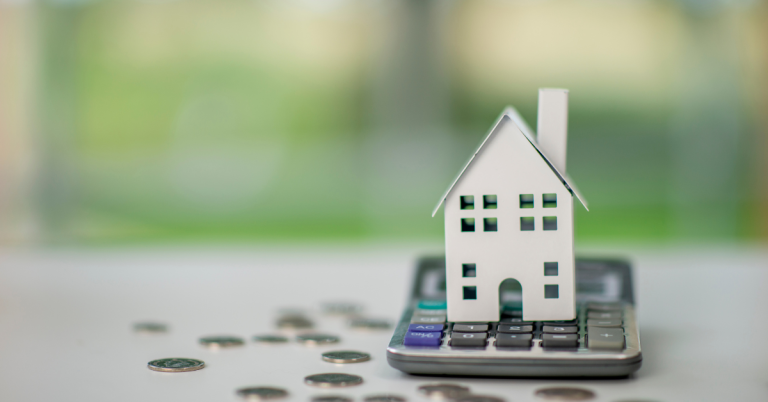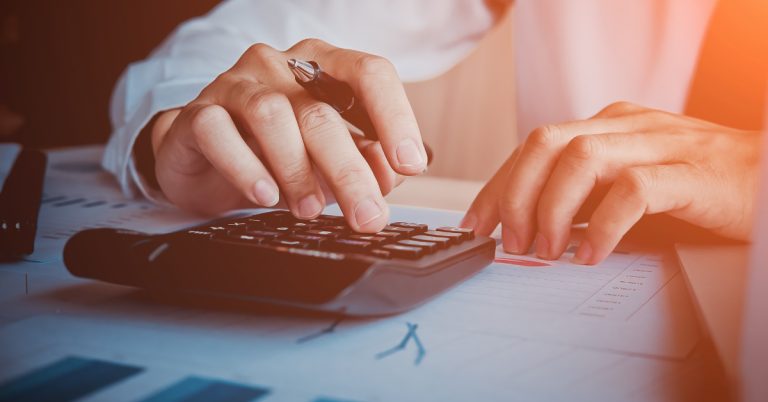Common Tax Mistakes That Freelancers Make: Here Are Things To Avoid
Freelancing is a great way to supplement your income and build up skills. However, it does come with some added responsibilities, such as paying taxes. Taxation is one of those things that most people think about once every few years, but it’s important to keep track of how much money you owe throughout the year. If you’re a freelance worker, there are several common pitfalls that can lead to big fines and even jail time. Here are five common mistakes freelancers make when filling out their annual tax returns.
1. Failing To File A Self Assessment Return
If you haven’t been working full-time for over six months, you probably won’t be required to fill out a self assessment tax return. This doesn’t mean you shouldn’t do it though – it just means that you won’t be liable for any penalties or interest charges. You still need to complete the form and send it off to HMRC, however.
2. Not Paying Enough Income Tax
You might think that since you aren’t earning enough to pay income tax, you don’t have to worry about it. Unfortunately, this isn’t true. Even if you don’t earn enough to pay income tax directly, you can still end up owing money to HMRC because of deductions. For example, if you claim certain expenses like rent, mortgage payments, utilities, food, etc., you might be able to deduct them from your taxable income. But, if you don’ t include these items, you could end up owing the government money.
3. Forgetting About VAT
VAT stands for Value Added Tax, and it’s a sales tax that applies to goods sold within the United Kingdom. While it’s technically optional, it’s highly recommended that freelancers charge VAT on their invoices. In fact, it’s almost impossible to sell anything without charging VAT unless you work exclusively online. And, while there’s no penalty for forgetting to add VAT to your invoice, it’s still worth doing.
You need to tell HMRC that you are a freelancer.
Self-employed individuals should prepare an annual tax return. If you are a freelance worker who forgets to pay yourself employment income tax, you could face penalties. You must keep track of all your earnings and expenses. And, you must file a tax return within 30 days after the close of each calendar quarter.
If you don’t do it correctly, interest and penalty fees start accruing immediately. You’ll owe even more money if you’re late filing.
A tax professional can help you complete your tax return. But, there are some things you can do on your own.
Personal allowance
The HMRC offers several ways to separate your personal and business expenses. This includes keeping your personal and business bank accounts separate, separating your tax return, and setting up a business checking account.
Separate Bank Accounts
If you keep your personal and business funds in different banks, it helps prevent fraud. If someone gets access to one set of funds, they won’t necessarily know what the other contains. You’ll want to make sure you don’t use the same debit/credit cards for both purposes.
Separate Tax Returns
You can file taxes for each individual purpose separately. For example, if you’re filing a Schedule C for your consulting business, you wouldn’t include any of your personal income on that form. Instead, you’d just list your business’ earnings and deductions.
Business Checking Account
A business checking account is often used to pay vendors and employees. It’s important to note that some businesses are required to maintain a business checking account while others aren’t. Check out your state’s requirements to find out whether you must maintain a business checking account. A business checking account allows you to deposit checks directly into the account and write checks against it.
The £1,000 minimum threshold
Taxable income is calculated after you deduct all expenses. If you make less than £10,000 per annum, you won’t pay any taxes. However, if you earn over £50,000, you’ll start paying National Insurance contributions (NICs). You’re charged NICs based on your taxable income. In 2018/19, the basic rate of NI is 10%, rising to 12% for those earning above £40,000 and 20% for anyone making over £45,000.
If you don’t want to pay any NICs, it’s best to keep your earnings under £10,000. This way, you won’t have to worry about the taxman and can focus on what really matters – growing your freelance career.
But there is another option. As long as you’ve been working for yourself for at least three months, you can claim a personal allowance of £8,105. So, if you earn just £9,095 in the current tax year, you could save up to £2,100.
You’ll still have to pay some tax, but you’ll be able to reduce the amount you owe. And if you work hard, you might even end up saving money overall.
Trading allowance
The UK government introduced a new tax-free allowance for small businesses in April 2017, allowing individuals to receive a maximum £1,000 per year without having to pay income tax. The allowance applies to people who are self-employed, including sole traders, partnerships, limited companies, charities and trusts.
This is a very good, under-promoted scheme, because it means that freelancers with expenses of less than £1,001 don’t have to keep track of those expenses anymore. Instead, they can just claim the £1000 – even if they actually spent less than £1,00. There are some rules about how much money can be claimed though:
– You cannot use this to cover your personal living costs.
– You cannot use it to cover your employees’ salaries.
– You must be able to prove that you didn’t spend more than £1,000 during the tax year.
– And you must file a return for the tax year.
But there are no other self-employment benefits, like mileage, home office, IT equipment, etc., and expenses can still be claimed above this, if you use this allowance.
Missing out on expenses
There are some things that freelancers often forget about when it comes to claiming tax credits and deductions. If you’re working from home, there are plenty of ways to save money on your taxes. You could even make a few extra bucks along the way. But, there are certain items that aren’t allowed to be claimed as a deduction. Some common examples include:
Home Rent – This includes any portion of your rental property that you use exclusively for business purposes. So, if you live in a one bedroom apartment and spend half of your week in meetings, you can’t deduct the cost of your mortgage or rent against your income.
Business Phone Bills – You can’t deduct the cost associated with your cell phone bill if you use it primarily for personal reasons. However, if you use your cell phone for business purposes, you can claim the entire amount of the bill.
Stationary – Like phones, stationary can be used for both personal and professional purposes. While you generally can’t deduct the cost, you can still claim the value of your pens, notebooks, and paper clips.
Travel Expenses – These can range from airfare to car rentals. Keep in mind, travel expenses must be directly related to your job. If you go on vacation just because you want to take off for a while, you won’t be able to claim those costs.
Avoid double taxes
Freelancing isn’t just about getting work done. In fact, many people who are self-employed do it because they want to keep control over their finances and avoid being tied down by a 9-to-5 job. However, most freelancers don’t realise that they must still pay tax on their freelance earnings. And while some freelancers might think that they can claim back their tax payments from HM Revenue & Customs (HMRC), there are actually some things you shouldn’t do.
The key thing to remember here is that freelancers aren’t employees. They’re self-employed, meaning that they’re responsible for paying their own taxes. So, if you earn money from freelancing, you need to make sure you declare all the income and expenses associated with it. If you haven’t already done so, now is the perfect time to start. You could find yourself having to pay twice – once from your employer and again from HMRC.
Frequently Asked Questions
What taxes must all freelancers pay?
1. Income Tax
Income tax is a tax levied on income earned by individuals in the United Kingdom. There are two types of income tax in the UK, personal and corporation tax. Personal income tax is charged at different rates depending upon whether the individual earns over £150,000 per annum (over £100,000 if married). Corporation tax is charged at a rate of 20% on profits above £500,000.
2. Capital Gains Tax
Capital gains tax is a tax on any profit derived from the sale of property. In the UK capital gains tax is paid on any profit made on the disposal of shares, bonds, debentures, land, commercial property, etc. If the profit exceeds £10,000 then 25% tax is payable.
3. Stamp Duty Land Tax
Stamp duty land tax is a tax on buying residential property. It is calculated based on the purchase price of the property and is due annually.
4. Inheritance Tax
Inheritance tax is a tax imposed on estates of deceased persons. It is calculated based upon the value of the estate and is due annually. The inheritance tax threshold is currently set at £325,000.
5. National Insurance
National insurance is a compulsory social security system in the UK. Contributions are deducted from employees’ salaries before they receive their wages. NI contributions are not taxed.
6. VAT
VAT stands for Value Added Tax. It is a sales tax applied to goods and services sold in the UK. A flat-rate percentage added to the cost of products and services. VAT is collected by retailers and passed onto consumers.
7. Council Tax
Council tax is a local government tax. It is assessed on the basis of the number of bedrooms in a house and its area.
How often do self-employed people pay taxes?
1. Freelance workers who work out of their home are not considered self-employed and therefore don’t have to pay tax.
2. If you’re working freelance full time (40 hours per week) then you’ll need to register for VAT if you earn over £8300 per year. You’ll only need to register for VAT once, even if you change jobs.
3. If you’re earning less than £8300 per year, you won’t need to register for VAT.
4. If you’re registered for VAT, you’ll get a quarterly return statement showing how much you owe.
5. If you’re registered, you’ll need to keep records of what you spend money on, including receipts.
6. You can claim back any expenses you’ve paid for yourself, including travel costs, phone bills, childcare, and internet access.
7. You can deduct some business expenses from your taxable income. These include things like rent, rates, insurance, utilities, marketing, advertising, and IT equipment.
8. You may be able to reclaim some of your business expenses if they relate to running your own business.
9. You can claim back the cost of any training courses you took.
10. You can claim back some of your business expenses depending on whether you run your business from home or elsewhere.
11. You can claim back business expenses if you use them to help you run your business.
12. You can claim back certain business expenses if you use these to make your job easier.
13. You can claim back your business expenses if you use the same ones again and again.
14. You can claim back a percentage of your business expenses each quarter.







